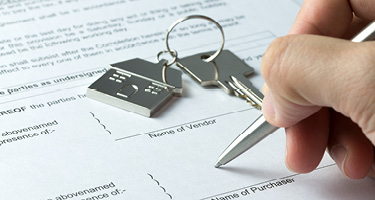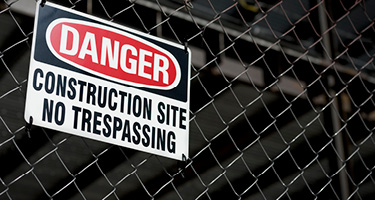Due diligence in real estate is essential for all parties. When it comes to investing in commercial real estate, conducting thorough due diligence is paramount.
The process of due diligence involves a comprehensive examination and analysis of various aspects of a property to assess its viability, potential risks and financial performance. Whether a party is a seasoned investor or a first-time buyer, understanding the essential steps involved in commercial real estate due diligence is crucial for making informed decisions and safeguarding investments.
Let’s walk through the key steps of effective due diligence, providing the knowledge and tools necessary to navigate the complexities of commercial real estate transactions successfully. By following these steps, you'll be equipped to identify potential pitfalls, evaluate opportunities and make confident investment choices in the dynamic world of commercial real estate.
Preparing for Due Diligence
Before diving into the detailed process of due diligence, proper preparation is essential to ensure a smooth and efficient evaluation of a commercial real estate property.
Taking the time to establish objectives, assemble a qualified team and create a comprehensive checklist and timeline will lay the foundation for a successful due diligence process. In this section, we will explore the crucial steps involved in preparing for due diligence and discuss why each step is important.
Identifying The Objectives and Scope of Due Diligence
Clearly defining the objectives of the due diligence process is crucial to focus efforts and align them with investment goals. Are you looking to acquire a property for long-term income generation or short-term appreciation? Understanding the goals will help you determine the scope of due diligence, including which areas to prioritize and the level of depth required in each aspect.
Assembling a Due Diligence Team
Due diligence is a complex undertaking that requires expertise across various domains. Assemble a team of professionals who can contribute their specialized knowledge to the process. This may include:
- real estate attorneys;
- commercial property inspectors;
- environmental consultants;
- financial analysts;
- and other relevant experts.
Collaborating with a diverse team will provide comprehensive insights and ensure that all aspects of the property are thoroughly examined.
Creating a Checklist and Timeline for the Due Diligence Process
Developing a comprehensive checklist will help you organize the necessary tasks and ensure that no critical areas are overlooked during due diligence. Consider including categories such as:
- legal documents
- financial records
- physical inspections
- market analysis
- environmental assessments
Additionally, establish a realistic timeline to guide the entire process, accounting for the complexities of each task and allowing sufficient time for thorough evaluations.
By taking these preparatory steps, you set the stage for a structured and efficient due diligence process.
Document Review and Analysis
Once parties have laid the groundwork by preparing for due diligence, the next crucial step is to review and analyze the relevant documents associated with the commercial real estate property.
This phase involves a meticulous examination of legal and financial documents to gain a comprehensive understanding of the property's history, obligations and financial performance.
Generally speaking, this review will involve investigating:
- Contracts and leases.
- Title deeds and surveys.
- Environmental reports.
- Income statements and rent rolls.
- Tax returns and financial statements.
- Property management records.
Thoroughly reviewing and analyzing legal and financial documents is crucial for uncovering potential risks, obligations and opportunities associated with commercial real estate property.
Physical Inspection and Assessment
Once the document review and analysis phase is complete, it's time to conduct a thorough physical inspection and assessment of the commercial real estate property. This step is crucial for evaluating the property's condition, identifying any potential issues and assessing the overall quality and suitability of the investment.
By focusing on building conditions, mechanical and electrical systems, safety compliance, amenities, landscaping and utility infrastructure, parties will gain valuable insights into the property's physical attributes and identify any factors that may impact its long-term value and operational efficiency.
Market Analysis and Feasibility Study
In addition to assessing the physical condition of a commercial real estate property, conducting a comprehensive market analysis and feasibility study is crucial for evaluating its potential for success and profitability. This step involves examining the local market dynamics, analyzing comparable properties and assessing the property's financial viability.
By conducting a thorough market analysis and feasibility study, a party will gain a comprehensive understanding of the commercial real estate property's potential within the local market. By examining supply and demand dynamics, rental and vacancy rates, future development plans and financial viability factors, parties can assess the property's attractiveness as an investment and make informed decisions during the due diligence process.
Legal and Regulatory Compliance
Ensuring legal and regulatory compliance is a critical aspect of commercial real estate due diligence. It involves verifying that the property adheres to relevant laws, regulations and permits. Understanding zoning restrictions, assessing building code compliance and investigating any pending litigation or legal issues are crucial steps in mitigating risks and ensuring a smooth transaction.
Adhering to these steps, a buyer can identify potential obstacles, proactively address compliance matters and make informed decisions during the due diligence process. Seeking legal counsel is advised to navigate these complexities effectively.
If you’re looking for legal guidance on any matter, use the Best Lawyers Find a Lawyer tool to connect with experienced lawyers ready to assist.
































